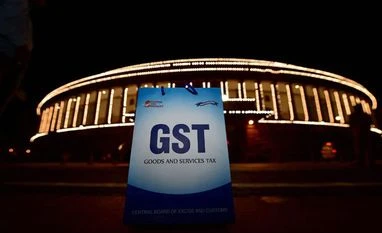The buying and selling of second-hand goods will not attract Goods and Services Tax (GST) if sold at a price cheaper than the purchase price, the government said on Saturday.
Rule 32(5) of the Central Goods and Services Tax (CGST) Rules, 2017, provides that where a taxable supply is provided by a person dealing in buying and selling of second hand goods or used goods as such or after such minor processing which does not change the nature of the goods and where no input tax credit has been availed on the purchase of such goods, the value of supply shall be the difference between the selling price and the purchase price and where the value of such supply is negative, it shall be ignored. This is known as the margin scheme.
The clarification comes after doubts were raised regarding the applicability of the Margin Scheme under the GST for dealers in second hand goods in general and for dealers in old and used empty bottles in particular.
"The value will be difference between selling and purchase price and where the value of such supply is negative it shall be ignored, provided there is no change in nature of goods and credit on purchased second hand goods is not availed by dealer. In case the value determined is negative, i.e. goods are sold at loss then tax will not be payable," GST expert Pritam Mahure told IANS.
Thus, Margin Scheme can be availed of by any registered person dealing in buying and selling of second hand goods (including old and used empty bottles) and who satisfies the conditions as laid down in Rule 32(5) of the Central Goods and Services Tax Rules, 2017.
Rule 32(5) of the CGST Rules is a special sub-rule for person buying and selling second hand goods (for instance used cars, television and mobiles).
More From This Section
Further, the government notification exempts Central Tax leviable on intra-state supplies of second hand goods received by a registered person dealing in buying and selling of second hand goods (who pays the central tax on the value of outward supply of such second hand goods) from any supplier, who is not registered.
"This has been done to avoid double taxation on the outward supplies made by such registered person, since such person operating under the Margin Scheme cannot avail input tax credit on the purchase of second hand goods," the Finance Ministry said here in a statement.
)